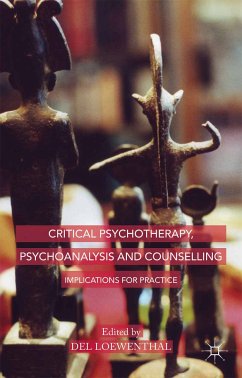"This remarkably concise and erudite text will have value for experienced practitioners as well as those new to the field. It provides a broad and compelling critical analysis of psychiatry and related professions." (Sandra Steingard, metapsychology, Vol. 19 (51), December, 2015)
'This long-needed book explodes the myth that mental disorders are just 'diseases like any other.' It highlights the misunderstandings and disappointments this view has caused and carefully explores the nature of modern-day treatments from drugs to psychotherapy in order to identify the elements that truly help people. It deserves to be widely read by all those interested in making mental health care more effective, more transparent and more humane.'
Joanna Moncrieff, University College London, UK
'This book is a very important and accessible report from the "front line" by an experienced psychiatrist with many years of general psychiatry under his belt. He has the very unusual advantage of simultaneously occupying an academic position in the sociology department of a Russell Group university, and hence bringing a fresh perspective to bear on the perennially troubled practice of doing psychiatry in the UK. This book provides a long hard look at psychiatry as medical practice diagnosis, medication, and psychotherapy. It confronts directly the fact that psychiatry is unpopular with many practitioners and clients, and examines the historical and contextual reasons for this, and what the alternatives might be. I recommend this book unreservedly to both professionals and the wider public.' Professor Nick Manning, King's College London, UK
'Psychiatry Reconsidered provides an insightful, evidence-based, analysis of the current crisis in psychiatry. Dr Middleton, an experienced psychiatrist himself, locates the problem in psychiatry's futile efforts to force complex human issues into a narrow medical framework. Not only does this illuminating book offer an honest assessment of psychiatry's failings but points to ways that the profession can rehabilitate itself and play a valuable role in future mental health research and practice.' Dr John Read, Professor of Clinical Psychology, Swinburne University of Technology, Melbourne, Australia; Editor of Models of Madness and the scientific journal Psychosis
'A serious scholarly examination of the profession of psychiatry, its challenges and role in the modern world. Written by a practising psychiatrist and academic this book offers a new vision for a socially oriented psychiatry fit for the twenty first century.' Stephen Joseph, Professor in Psychology, Health and Social Care, University of Nottingham, UK














